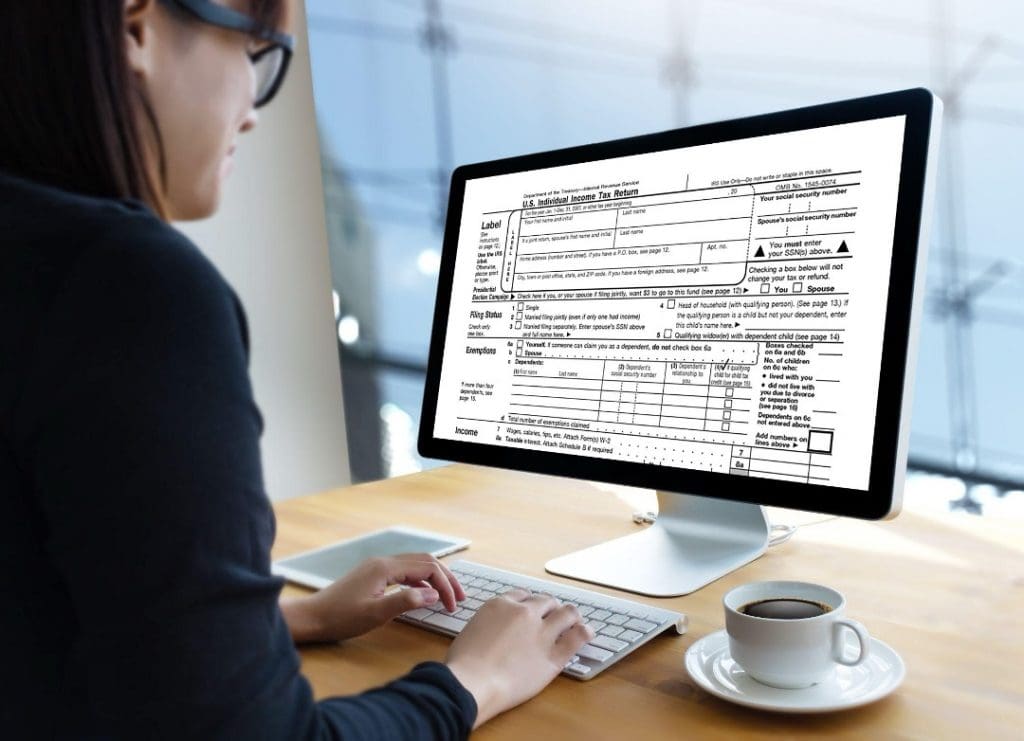Estimated reading time: 5 mins
The path to becoming a tax preparer might be shorter than you think. While it’s true that certain types of tax professionals, such as CPAs, study for years before starting their careers, this level of education isn’t required for every tax preparer. In fact, many successful tax preparers start their businesses in a matter of months. Want to do the same? Here’s how you can pursue a career as a tax preparer and get your business off the ground as fast as possible.

Tax Preparer Prerequisites: Skills a Tax Professional Should Have
Unlike CPAs, tax preparers don’t need a specific degree or certification to start their business. Still, all tax preparers need a few essential skills to be successful.
Tax Knowledge
Perhaps the most obvious is an understanding of the tax laws that will impact your clients. If you’re starting out with relatively little tax knowledge, this may seem like a huge undertaking. However, getting up to speed on tax basics is likely easier than you think. Each year, the IRS offers its Annual Filing Season Program (AFSP), which allows uncredentialed tax preparers to take courses on the basics required to competently prepare tax returns each season. With just 18 hours of credits from an IRS-approved education provider, you can obtain an AFSP Record of Completion. The program is voluntary, but it’s an excellent and affordable way to get your bearings in the world of taxes – and prove your expertise to potential clients.
From there, you can look into continuing education options and credentials – such as IRS Enrolled Agent status – as you further your career.
Tech Savviness
Tax preparation has become increasingly reliant on technology. A modern tax preparer must be comfortable navigating various software platforms and leveraging technology to streamline their business processes. Fortunately, there are some extremely user-friendly tax software options on the market today.
People Skills
People skills are paramount in any service industry, but especially in the tax preparation business. Clients often find the tax season stressful and confusing, and a tax preparer’s ability to communicate complex tax concepts in a clear and empathetic manner is invaluable.
Step 1: Obtain a PTIN
The first step on your journey to become a tax preparer is obtaining a Preparer Tax Identification Number (PTIN). This unique identifier is issued by the Internal Revenue Service (IRS), and you can complete the application on the IRS website in as little as 15 minutes.
What is a PTIN?
A PTIN is a nine-digit number that helps the IRS track and regulate tax preparers. It’s legally required for anyone who prepares tax returns for paying clients.
Step 2: Apply for an EFIN
Once you have your PTIN in hand, the next step is to apply for an Electronic Filing Identification Number (EFIN). This unique identifier allows tax preparers to submit tax returns to the IRS electronically, a faster and more efficient method than traditional paper filing. The IRS requires any tax preparer who files more than five tax returns in a season to file electronically, making an EFIN essential.
What is an EFIN?
An EFIN is a six-digit number issued by the IRS after a thorough screening process. The approval time takes significantly longer than that of the PTIN, often around 45 days. To obtain an EFIN, tax preparers must pass a suitability check, which may look into their tax compliance, credit, and any criminal background.
Step 3: Obtain Your Business License in Your State
With your PTIN and EFIN secured, the next step is to obtain a business license in your state. Each state has its own requirements and processes for licensing tax preparers, and some are far more regulated than others. It’s essential to research and comply with the specific regulations in your jurisdiction. Be sure to check if your county and city have their own licensing requirements as well.
Step 4: Office Location Situation: Remote or Brick-and-Mortar?
Once your licenses are squared away, it’s time to set up shop. The question is, will that “shop” be a physical office or a remote tax practice? The rise of cloud-based tax software has made remote tax preparation increasingly feasible, allowing tax professionals to serve clients from across the country and manage multi-person tax teams from home. However, some tax preparers understandably prefer the credibility and visibility that come with a brick-and-mortar office.
Consider your target market, personal preferences, and the nature of your budget when making this decision. Even if you hope to have a brick-and-mortar office one day, starting virtually can dramatically reduce your overhead costs, letting you establish strong revenue streams before you take on the costs of a physical location.


Step 5: Choose The Right Tax Preparation Software
Your tax software will undoubtedly be your most important tool as a tax preparer, so don’t make the decision lightly. First, consider the program’s user-friendliness and overall reputation in the industry. Many well-established tax software companies offer demos of their products, so you can test out the interface for yourself. If you plan to work remotely, cloud-based software and features like mobile apps for your clients are a must.
How Long Does it Take to Become a Tax Preparer?
Technically, you could start your career as a tax preparer as soon as you obtain your PTIN, EFIN, and business licenses, which can take as little as six weeks. During this time, you could also complete most of the requirements for the IRS’s Annual Filing Season Program, which would arm you with the basic knowledge you need for a successful tax season. Even studying for the more difficult exam to become an Enrolled Agent can be done in around 3-6 months.
Of course, you’ll also need time to learn how to use your tax software, advertise your business, and find clients. Ultimately, a dedicated individual could start their tax business within a few months.
Conclusion
A career in tax preparation could be closer than you think. Start learning the basics through an IRS Annual Filing Season Program; apply for your PTIN, EFIN, and business license; choose your tax software; and set up your brick-and-mortar or virtual office. In just a few months, you can have a solid foundation for your future career in the tax industry.
